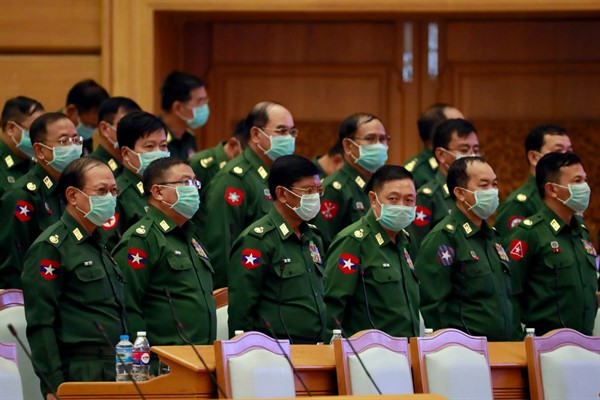Myanmar’s official public messaging about the coronavirus pandemic began with a video. To airy elevator music and a placid voiceover, Aung San Suu Kyi, the country’s de facto leader, stood in a nondescript bathroom and demonstrated the proper way to wash hands. It all seemed very calming and benevolent, with Suu Kyi acting out the maternal role she is accorded by her supporters.
Before the video was posted online on March 21, the government also established a coronavirus task force. But all the while, it sought to downplay the likelihood that COVID-19 would wreak havoc in Myanmar to the same degree it had elsewhere. When the first positive cases soon cropped up, Suu Kyi opened a Facebook account—her first, and likely an attempt to better personalize her relationship with the public—to, as she put it, “communicate faster and more efficiently” on coronavirus-related developments.
While Suu Kyi focused on public relations, others among the country’s leadership, which is still dominated by the military despite a transition to civilian rule, quickly and very publicly inserted themselves into the pandemic response. When reports of the first deaths from COVID-19 in Myanmar began to circulate in late March, senior officials aligned with the military established their own coronavirus task force. Stacked with high-ranking military members of the Cabinet and headed by the military-appointed vice president, U Myint Swe, a former general, it set about opening a quarantine center in the capital, Naypyidaw.

